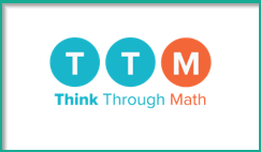
To mark this achievement, Think Through Learning has introduced Donor’s Choose and The Juvenile Diabetes Foundation as new, featured charities for the successful student-driven program.
“Studies show that providing kids the option to donate points to charity, develops decision-making skills, boosts confidence and lays the groundwork for a lifetime of philanthropic thinking and practice. Our charitable points program has encouraged this practice by providing an easy way for students who want to give to do so,” said Lisa Wise, manager of Think Through Math’s motivational program. “The fact that most TTM students choose to donate their hard earned THINK points over the option to redeem for individual and classroom prizes, speaks volumes about the integrity of our young people and their compassion for others.”
Since inception, TTM has been embraced by schools across the country, many of which are managing their own socioeconomic challenges. For example, despite coming primarily from low-income households, students in Brandee Davis’ ninth-grade class at KIPP Northeast College Prep in Houston chose to give back their points to the Big Brothers Big Sisters program, which mentors more than 90% of the school’s students.
“My students recognized this program would give them the opportunity to give back to their mentors. It was their way of saying ‘thank you for being there for me,’” said Davis.
In addition to making donations to featured charities throughout the school year, the TTM charitable giving program has also organized special fundraisers sparked by natural disasters or other local challenges. Recent examples include:
- THINK nation students from across the U.S. pledged their support for victims of the Nepal Earthquake by donating $10,000 to the American Red Cross Nepal Earthquake Fund in just nine days.
- When the community of Van, Texas was recently destroyed by an EF-3 tornado, Texas TTM students took advantage of the opportunity to convert their THINK points into $5,000 for the Red Cross fund.
- In support of Idaho’s “Annual Day of Giving,” TTM students in Idaho were given the opportunity to double their charity dollar donations resulting in more than $2,000 to the Idaho Meth Project.
With nearly three million students in more than 170,000 classrooms using Think Through Math, TTM is the fastest growing supplemental math program in the U.S. because of its proven performance. TTM provides rigorous, adaptive lessons built upon each state’s learning standards. TTM also has the unique feature of live, online math teachers who tutor struggling TTM students in real-time at the point when they need help, millions of times a year. In addition, TTM’s unique, customized motivation increases engagement and builds self-esteem so students increase their time on task. Exceptional instruction, live tutoring and fun motivation work together in this unique system to foster deep conceptual understanding and sustainable gains in math learning. Think Through Math has received numerous awards since its introduction and is expanding rapidly across the US.
For more information visit www.thinkthroughmath.com.
About Think Through Learning & Think Through Math
Think Through Learning, a leader in edtech innovation, is transforming math education in schools throughout the United States. Its flagship system, Think Through Math, helps struggling students learn, and love math, allows gifted students to excel, and gives teachers the data they need to help students succeed.
Designed for grades 3 and above, Think Through Math is the only software system that integrates state-certified teachers that tutor struggling students live at the optimal time in the learning process in order to improve their math understanding. Think Through Math ignites curiosity about math and helps students learn how to think mathematically. The 2014 and 2012 recipient of the, SIIA CODiE Award for Best Mathematics Instruction Solution Think Through Math is recognized as the fastest-growing supplemental math software. Since its launch in 2012, Think Through Math has become a critical part of the RTI, STEM, and 1-to-1 strategies of state education departments and thousands of districts and schools across the United States.












